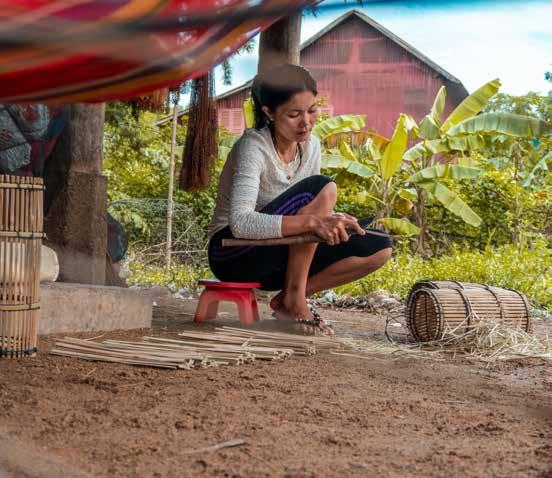
1 minute read
Water Matters to Safety from Violence

The length of time and distance faced in search of water is one of the primary ways that water disproportionately impacts women and girls, as these long and lonely efforts, often in the dark of early morning or late evening, leave them painfully vulnerable to attack.
Advertisement
Augusta reflected in her story on the courage that she and other girls in her village had to muster just to go out and perform this daily routine—and we do not believe that daily water should be daily endangerment. We are called to care for and protect the vulnerable. How do we address this?
Building wells in schools and other safe, local spaces is one way of addressing this vulnerability, but it is not the only means. At WHI, we try to tackle this challenge at every level — and that includes making sure that women are part of the conversation about where the wells should be built to best suit that village’s unique needs. Women are often aware of dangers that men would not think of or likely experience, such as what paths are the safer route for them to traverse. Ensuring that women are part of the planning from the beginning of a conversation helps us make sure we do not create new problems and instead come up with the best possible solution. It’s #smartsustainability.
DID YOU KNOW?
In addition to addressing violence against women by building wells, WHI is addressing violence as a whole and working closely with partners to empower and equip governments to address systemic violence. One example is the recent workshop in Sierra Leone to help the government revise the 2005 Anti-trafficking law so that the justice system will promptly address modern-day slavery. Read the full article online https://awoko.org/2018/11/05/ sierra-leone-news-reviewing-theanti-human-trafficking-act/










